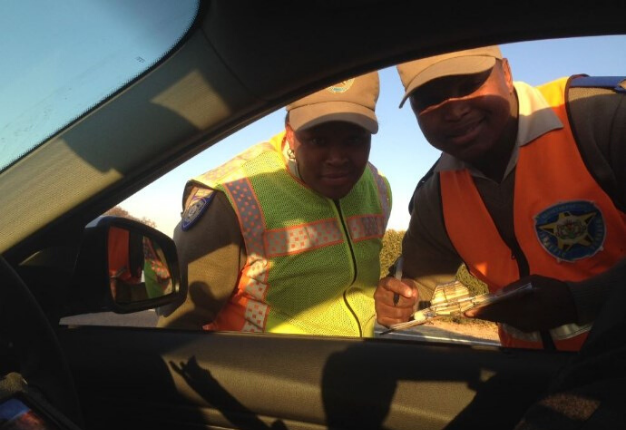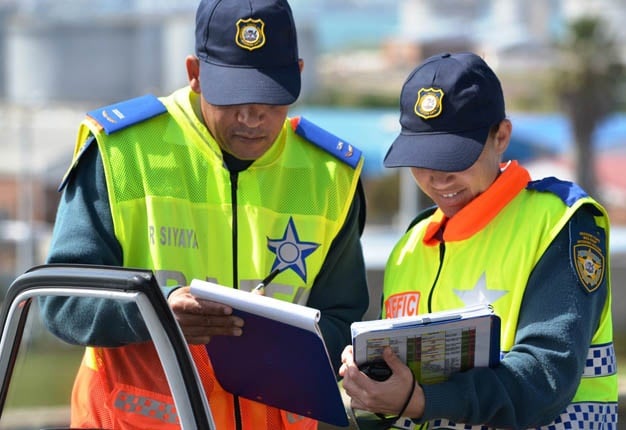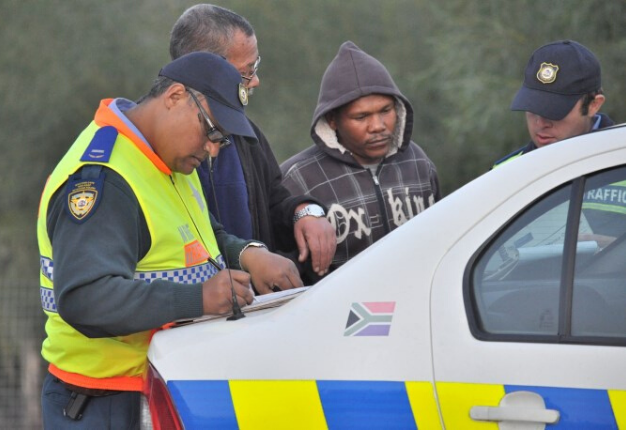Under lockdown rules, South Africans are not allowed to leave their homes, unless it is for essential reasons. For instance, going to the shop, hospital, or a fuelling station.
This undertaking, however, leaves you open to the elements (coronavirus), or law enforcement. And it is the latter that we, as road users, have to assist in any way possible to make their jobs just that little bit easier.
Earlier in April, Wheels24 published an article noting the importance of taking precaution when leaving your house. Eugene Herbert, managing director of MasterDrive, said: "You are also likely to encounter a lockdown roadblock. While it is already a law, be sure to have your driving license on you.
"Provide the law enforcement officials with the information that they request whether it is a permit or explanation as to why you are out. These individuals are working diligently to flatten the curve so let’s do what we can to assist."
A friendly attitude and accommodating approach will go a long way in ensuring a quick passage.
Image: Arrive Alive
Law officials' role
Both law enforcement and the public have responsibilities in ensuring safer roads for all. Though law enforcements are extensions of the law, they have strict rules to adhere to. Rules that are often less important than the badge. This can lead to altercations because officials talk down to road users and those they come into contact with.
Arrive Alive lists several important points we should be aware of when encountering law officials at a road block.
Law enforcement officials may:
• search your person and/or property without a warrant at a properly authorised roadblock;
• search your person and/or property at a “roadside check” without a warrant if you consent to a search or they have reasonable grounds to do so;
• seize any “contraband” or evidence without a warrant at a roadblock or a “roadside check”
• issue an infringement notice (“fine” in terms of the Criminal Procedure Act or the AARTO Act, as applicable) in respect of vehicle or driver fitness, together with passengers’ compliance with provisions of law;
• issue a notice to discontinue use of a motor vehicle if it is suspected of being unroadworthy, or impound it if it is clearly unroadworthy;
READ: Precautions to take when you're out on the road during lockdown
• arrest any person who has been, or they reasonably suspect has been involved in, or is about to commit an offence contemplated in Schedule 1 of the Criminal Procedure Act, without obtaining a warrant of arrest;
• arrest any person in respect of whom a warrant of arrest has been issued by a Court;
• arrest any person who commits any offence in his or her presence;
• drive or ride any class of vehicle if they consider it necessary to do so, even if he or she only possesses a code B driving licence; and
• inform you of your outstanding traffic fines.
Image: Arrive Alive
Law enforcement officials may not:
• physically or verbally abuse you or damage your property;
• search your person or property without a warrant except at a roadblock or where reasonable grounds to do so exist, or you consent to a search;
• merely threaten to arrest you;
• solicit a bribe;
READ: Rights and Obligations when stopped by a Traffic Officer
• force you to pay traffic fines at the roadside, even if a facility such as a bus is there for you to do so;
• withhold the prompt return of your driving licence in order to coerce you into paying outstanding traffic fines where no warrant of arrest exists or your driving licence card is not fraudulent; or
• discontinue or impound your vehicle without reasonable grounds.
Image: Arrive Alive
The public’s role
While these lawful points exist to protect the South African public, the opposing end of the spectrum also have a set of guidelines to adhere to when in confrontation with the law.
You may:
• demand to have sight of his or her certificate of appointment (a card authorising him or her to act as a peace officer);
• demand that any law enforcement official shows you written authorisation as is contemplated in Section 13(8) of the SAPS Act at a roadblock;
• demand to see proof of a warrant of arrest if one is claimed to exist;
• refuse to submit to arbitrary searches of your person or property at a “roadside check”, unless reasonable grounds therefor exist.
READ: Rights and Obligations when stopped by a Traffic Officer
You may not:
• physically or verbally abuse them or damage their property;
• refuse to provide a breath alcohol or blood sample;
• resist arrest; or
• offer or pay a bribe.
Final thought
With the weekend upon us, chances are that you might have to go to the grocery store. If the need arises, do so sober and avoid confrontation of any kind with anyone. And when you do get pulled over by law officials, adhere to their demands - within reason - and do not provoke them.
Remember, the courts are closed so avoid the risk of being thrown in jail. Play it safe, be respectful, and know your rights.
South Africa is in a very delicate state at the moment and law enforcers, and other essential services, are risking their lives for our safety. Let’s do our part and let’s keep South Africa safe.




 Publications
Publications
 Partners
Partners














